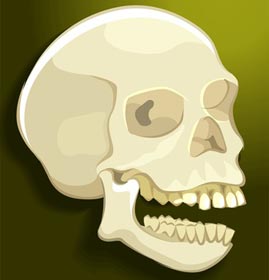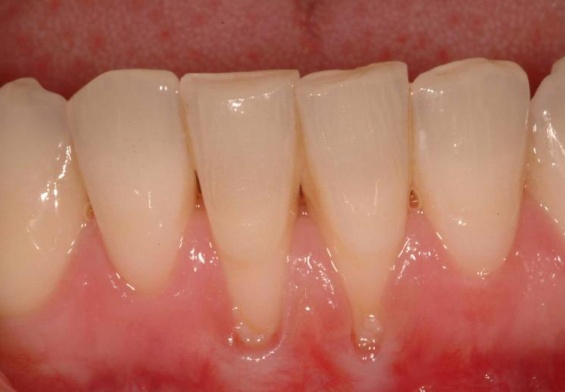Can a Dentist Treat TMJ?
Key Takeaways:
- Yes, general dentists are often the first point of contact for diagnosing and treating most TMJ disorders (TMDs).
- Common dentist-led TMJ treatments include splints, exercise therapy, self-care strategies, and medication management.
- Most dentists can manage TMJ issues without surgery by reducing pain and improving jaw function.
- While dentists don’t usually do TMJ surgery, they’ll refer you to a specialist if necessary.
- If you experience persistent jaw pain, clicking, or difficulty opening your mouth, talk to your dentist about it.
Yes, many general dentists can diagnose and treat temporomandibular joint (TMJ) disorders with non-invasive therapies like splints, custom exercises, self-care strategies, and medication.
Most mild to moderate TMJ cases can be treated in a dental setting, but they may refer you to a specialist in severe or complex cases.
Temporomandibular joint disorders, or TMDs, affect millions of people and are a major source of jaw pain, headaches, and restricted movement.
If you’re wondering whether your dentist can help with your jaw discomfort, the answer is most likely yes.
What Is TMJ and What Causes It?
The temporomandibular joint (TMJ) connects your jawbone to your skull. It works like a hinge, allowing you to chew, speak, and yawn. Conditions affecting this joint and the surrounding muscles and tissues are called temporomandibular disorders, or TMDs.
Common TMJ Disorder Causes
Common causes of TMD include:
- Teeth grinding or clenching (bruxism)
- Jaw misalignment or bite issues
- Arthritis in the joint
- Trauma or injury to the jaw
- Stress leading to muscle tension
Recognizing TMJ Symptoms
Symptoms may include jaw pain, clicking or popping sounds, difficulty opening your mouth, and even neck pain or headaches. Many conditions share these symptoms, which is why you need a thorough evaluation for a proper TMJ diagnosis and treatment plan.
Can a General Dentist Diagnose TMJ?
Of course. Most general dentists are trained to identify and diagnose TMJ disorders. In fact, they’re usually the first healthcare providers to do so. People suffering from TMJ bring up their symptoms during normal dental visits.
This puts general dentists in the perfect position to screen for TMJ or TMD and start a conservative treatment plan.
Dental Diagnostic Methods for TMJ
To diagnose TMJ, dentists use a combination of:
- Physical examination (e.g., feeling the jaw joint and muscles)
- Range of motion testing
- Patient-reported symptoms
- Imaging, such as panoramic X-rays or MRI in more advanced cases
Dentist-Provided TMJ Treatments
Dentists offer several effective non-surgical treatments for TMJ disorders that can provide significant relief. Most dental professionals follow a stepwise approach, starting with reversible and non-invasive therapies.
1. Splint Therapy for TMJ Relief
Splint therapy is one of the most common dentist-recommended treatments for TMD. It involves wearing a custom-fit oral appliance, similar to a night guard. The appliance helps take stress off of the jaw.
How TMJ Splints Work
What it does:
- Reduces clenching and grinding
- Repositions the jaw to relieve pressure
- Decreases muscle strain and inflammation
A meta-analysis of 13 studies involving over 500 patients confirmed that splint therapy led to significant improvements in pain reduction and maximal mouth opening for TMJ patients (Zhang et al., 2016).
2. Exercise Therapy for Jaw Mobility
If stiffness or limited mobility are in play, dentists may prescribe specific jaw exercises. Studies done on categories like stretching, coordination, resistance, and excursion movements have proven them to be effective.
Evidence for TMJ Exercises
According to a 2023 systematic review, coordination exercises showed notable benefits in both pain reduction and improved jaw mobility. This is encouraging support for exercise as a treatment modality for TMD (Shimada et al., 2023).
3. Self-Care and Patient Education
Dentists often start with guidance on basic self-care, such as:
- Eating soft foods
- Avoiding wide yawning or gum chewing
- Using heat or cold packs
- Practicing relaxation or stress-reduction techniques
- Correcting posture
Effectiveness of TMJ Self-Management
Self-care strategies are commonly combined with splint therapy and OTC medication as a comprehensive approach to managing TMJ-related symptoms.
4. Medication Management for TMJ Pain
Dentists may also recommend medications for short-term relief:
- NSAIDs (like ibuprofen) to reduce inflammation
- Muscle relaxants for clenching and spasm
- Low-dose corticosteroids in specific cases
Combining TMJ Treatments
Most dentists combine these medications with other therapies rather than using them by themselves. Conservative care using a combination of strategies often results in substantial symptom relief.
Do Dentists Perform TMJ Surgery?
Most dentists can treat TMJ disorders with non-surgical approaches. That said, a small percentage of cases need surgery. Surgery is usually beyond the scope of general dentistry, so they’ll refer you to a specialist.
When TMJ Specialists Are Needed
Dentists refer patients to oral surgeons or TMJ specialists when:
- Conservative treatments fail over several months
- There is severe structural joint damage
- The jaw is locked or dislocated
Surgery is generally considered a last resort after trying more conservative dental treatments.
When Should You See a Dentist for TMJ?
You should consult a dentist about TMJ if you experience jaw pain, clicking sounds, or limited mouth opening for more than a week.
Common Reasons to Seek Help:
- Persistent jaw pain or tightness
- Clicking or popping sounds when chewing
- Difficulty opening or closing your mouth
- Frequent headaches, especially near the temples
- Facial soreness or ear discomfort
Benefits of Early TMJ Intervention
Getting treatment early can prevent chronic pain and avoid more invasive procedures. Many TMJ issues are related to dental habits and jaw alignment, so your dentist is the perfect place to start your TMJ treatment.
What Type of Dentist Treats TMJ Disorders?
While general dentists can treat most TMJ conditions, some specialized dentists focus on jaw disorders. You may also be referred to one of the following specialists:
- Prosthodontists – Dentists who specialize in jaw and bite issues
- Oral and maxillofacial surgeons – For complex or surgical cases
- Orofacial pain specialists – Experts in managing facial pain disorders
Multidisciplinary TMJ Care
Your general dentist may also collaborate with physical therapists, behavioral therapists, or pain specialists if your symptoms require a broader team-based approach.
Can Dentists Customize Treatment Based on Your TMJ Symptoms?
Yes. Dentists personalize TMJ treatment plans based on specific symptoms and clinical findings. TMJ treatment is not one-size-fits-all. Dentists look at several factors when creating your care plan:
- Pain severity and frequency
- Jaw mobility (e.g., how wide you can open your mouth)
- Presence of grinding or clenching
- Joint sounds like clicking or popping
- How symptoms respond to initial care
Tailored TMJ Therapy Approaches
For example, splints might work best for nighttime clenching, while exercises help those with restricted jaw motion. In some cases, combining splints, physical therapy and medication provides better results for TMJ pain relief.
How Effective Are Dentist-Led TMJ Treatments?
Research shows that dentist-provided non-surgical TMJ treatments are effective for most patients.
- Splints helped improve mouth opening and reduce pain, particularly for patients with TMJ clicking and limited movement (Zhang et al., 2016).
- Exercise therapy, especially coordination-focused, improved jaw function and reduced pain (Shimada et al., 2023).
Measuring TMJ Treatment Success
Treatment success is usually measured by reduced pain levels, improved jaw function, and better quality of life. Many patients report significant improvement within a few months of starting conservative dental treatment.
Dentists and TMJ FAQs
Can a regular dentist treat TMJ?
Yes, most general dentists are trained to treat TMJ using splints, exercises, and pain management strategies.
What is the best treatment for TMJ by a dentist?
It depends on the symptoms. Splints are often the first step, followed by exercises or self-care. In complex cases, dentists may coordinate care with specialists.
Do I need surgery for TMJ, or can a dentist help?
Most people don’t need surgery. Conservative treatments provided by a dentist are usually effective, especially when started early.
Dentists’ Role in TMJ Management
Dentists are the ideal first healthcare provider to consult for TMJ disorders, offering effective non-surgical treatments that work for most patients. If you’re struggling with jaw pain, clicking, or stiffness, your dentist should be the first place you look.
With the right diagnosis and a personalized treatment plan, you can manage most TMJ problems without surgery or invasive procedures.
Dentists offer a wide range of tools that help patients regain comfort and function. And when needed, they’ll guide you to the right specialists for extra care.
Don’t ignore TMJ symptoms. Schedule a consultation with your dentist and take the first step toward jaw pain relief and improved quality of life.
References:
Shimada A., Ogawa T., Sammour SR., et al. (2023). Effectiveness of exercise therapy on pain relief and jaw mobility in patients with pain-related temporomandibular disorders: A systematic review. Front Oral Health. https://doi.org/10.3389/froh.2023.1170966
Zhang C., Wu J., Deng D., et al. (2016). Efficacy of splint therapy for the management of temporomandibular disorders: A meta-analysis. Oncotarget. https://www.oncotarget.com/article/13059/text/



